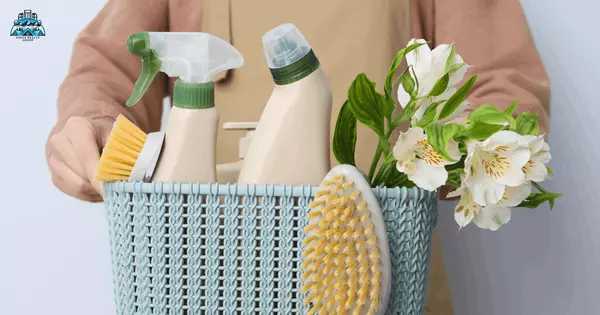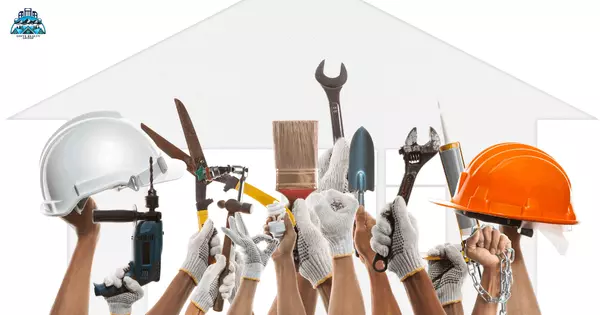
Habits for a Spotless Home
Maintaining a tidy home requires consistent effort and the establishment of effective habits. By incorporating these five habits into your daily routine, you can keep your living space organized, clean, and clutter-free: Establishing a Cleaning Schedule: Designate specific days or times for different cleaning tasks, such as dusting, vacuuming, and bathroom cleaning. Breaking down cleaning chores into manageable chunks makes them less overwhelming and ensures that no area of your home is neglected. Creating To-Do Lists: Compile a list of cleaning tasks for each day or week and prioritize them based on urgency and importance. Crossing off completed tasks provides a sense of accomplishment and motivates you to tackle additional cleaning projects. Assigning Everything a Home: Designate a specific storage space for every item in your home to minimize clutter and maintain organization. When everything has its place, it's easier to find what you need and keep your living space tidy. Regular Decluttering: Set aside time regularly to purge unnecessary items from your home and declutter your living spaces. Donate or discard items that no longer serve a purpose or bring you joy, and avoid accumulating unnecessary clutter in the future. Utilizing Storage Solutions: Invest in storage bins, baskets, and organizers to maximize space and keep your belongings organized. Utilize vertical storage options, such as shelves and wall-mounted organizers, to free up floor space and reduce visual clutter. By incorporating these habits into your daily routine, you can maintain a spotless home with minimal effort and enjoy a clean and clutter-free living environment.

DIY Maintenance Skills to Save Money
Becoming a DIY home maintenance hero is not just about saving money—it's also about understanding and taking care of the space you live in. Acquiring a set of basic DIY skills can help you tackle common household issues, prevent minor problems from turning into major expenses, and enhance your home’s value. Here are essential DIY skills every homeowner should master to keep their living space in peak condition. Basic Plumbing Understanding the basics of your home's plumbing system can save you from the panic of minor leaks and clogged drains. Learning to replace a faucet, unclog a drain, or even fix a running toilet can prevent water damage and reduce water waste, saving on utility bills. Painting and Patching A fresh coat of paint can transform any room. Mastering the art of painting, including prep work, choosing the right paint, and using the correct techniques, can make your DIY paint job look professional. Additionally, knowing how to patch small holes in walls is a handy skill for maintaining the aesthetics of your home. Electrical Safety and Fixes While major electrical work should be left to professionals, understanding the basics of your home's electrical system and safety can be beneficial. Learning how to replace a light switch, install a new outlet, or change light fixtures safely can illuminate your space without blowing a fuse or budget. Carpentry Basics Basic carpentry skills, such as fixing squeaky doors, repairing broken furniture, or installing shelves, add functionality and personal touches to your home. Mastering the use of tools like hammers, drills, and saws is essential for these tasks. Weatherproofing Understanding how to seal leaks and insulate your home can make it more energy-efficient, comfortable, and secure against the elements. Learn to apply caulk and weather stripping around windows and doors to keep the cold out and the warmth in. Gardening and Landscaping A well-maintained garden and landscape not only boost curb appeal but also can improve your home's overall sustainability. Basic gardening skills, such as pruning, mulching, and lawn care, contribute to a healthier, more inviting outdoor space. Appliance Maintenance Regular maintenance of home appliances can extend their life and efficiency. Cleaning refrigerator coils, descaling the coffee maker, and checking dryer vents are simple tasks that keep appliances running smoothly. DIY home maintenance is a rewarding journey that empowers homeowners, fosters creativity, and nurtures a deeper connection to one’s living space. By mastering these skills, you can maintain a safe, functional, and beautiful home, ensuring it remains a haven for years to come.

Simplifying the Moving Process in Three Key Steps
Embarking on the journey of moving to a new home brings forth a blend of anticipation and anxiety. While the prospect of a fresh start is exhilarating, the logistics of packing up your entire life can feel overwhelming. However, with a strategic approach, the seemingly daunting task can transform into a manageable endeavor. Here are three fundamental steps to prepare for a move and alleviate the associated stress: Conducting a Comprehensive Inventory: The initial step towards a smooth relocation is meticulously inventorying all your possessions. Although this may appear daunting, documenting every item proves invaluable in the long run. Whether opting for a DIY move or employing professional movers, a detailed inventory ensures nothing gets overlooked. Organizing items by room facilitates efficient packing and unpacking, simplifying the transition to your new abode. Boxing with Precision: Once the inventory is complete, the next phase involves boxing up your belongings. While hardware stores offer suitable boxes, exploring local platforms like Facebook for cost-effective options can yield savings. Packing items according to rooms, as outlined in the inventory, enhances organization. Additionally, labeling boxes by room expedites the unpacking process, enabling a seamless settling-in experience. Selecting the Right Moving Truck: Renting a moving truck necessitates careful consideration to ensure adequate space for transporting your possessions. Fortunately, various online resources provide calculators to determine the appropriate truck size based on your furniture and box inventory. While some prefer managing the packing themselves, enlisting professional movers solely for the truck-loading aspect can alleviate physical and mental strain. Leveraging their expertise not only eases the burden but also ensures efficient utilization of space within the truck. While moving entails its share of challenges, adopting a structured approach significantly mitigates stress levels. By meticulously inventorying belongings, packing systematically, and availing professional assistance where necessary, the transition to a new home becomes a more manageable and even rewarding experience.
Categories
Recent Posts











